#Samhain Society
Explore tagged Tumblr posts
Text




I can't wait for Autumn 🍂🍁
#autumn#fall aesthetic#fall#halloween#autumn aesthetic#all hallows eve#samhain#rainyday#dark academia#dark acadamia aesthetic#books & libraries#the secret history#books#francis abernathy#donna tartt#henry winter#richard papen#bunny corcoran#camilla macaulay#if we were villains#dead poets society#october#october aesthetic#dead poets aesthetic#dps#tsh donna tartt#aesthetic#spooky aesthetic#spooky season
7K notes
·
View notes
Text
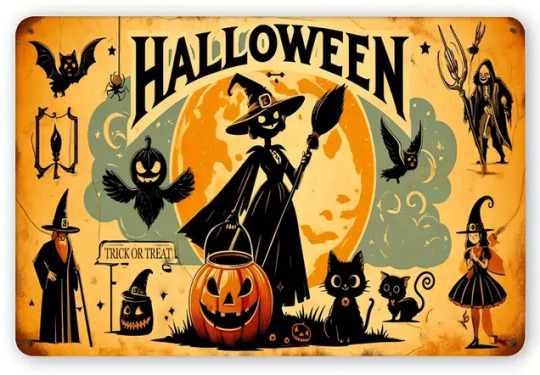
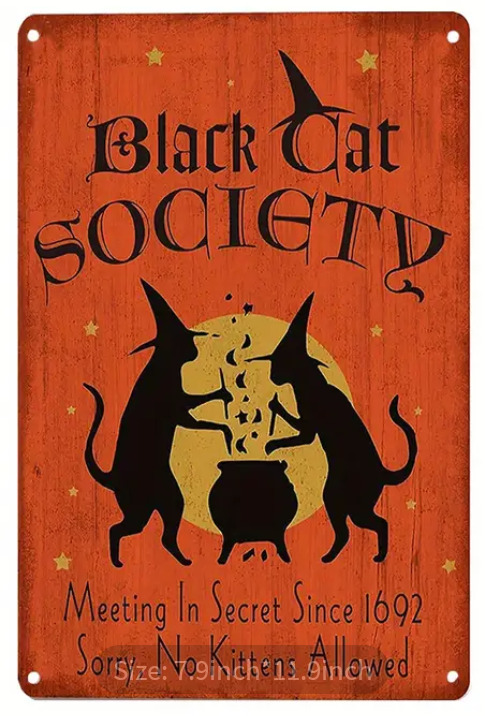
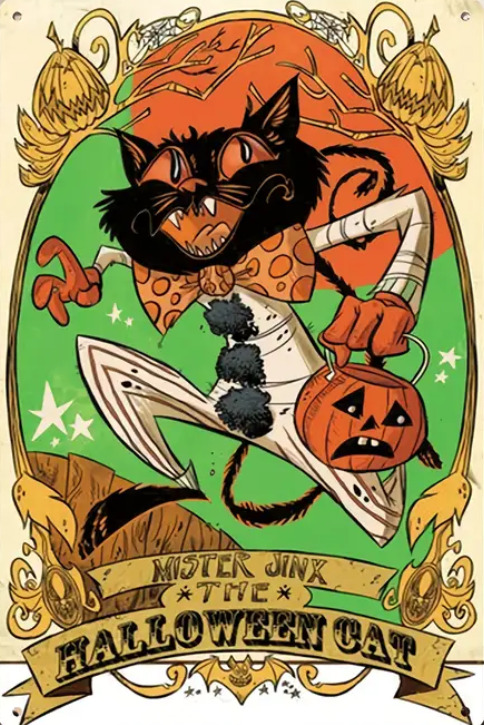
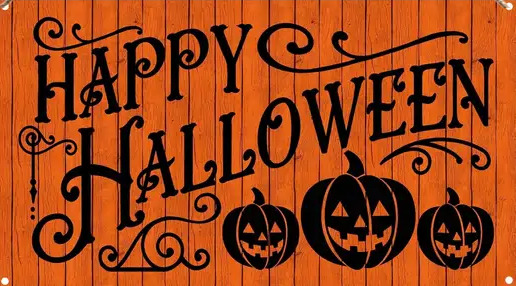

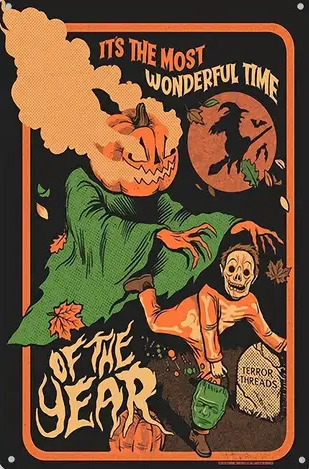
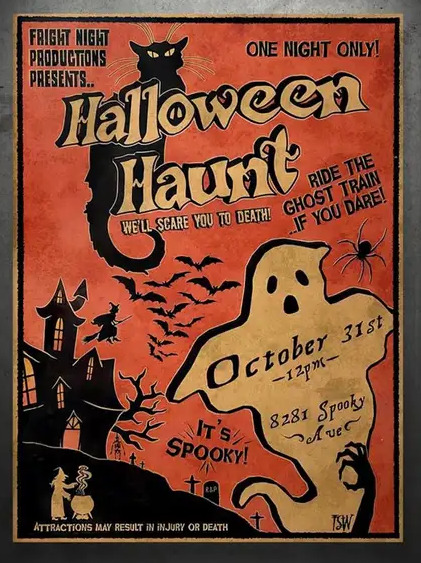
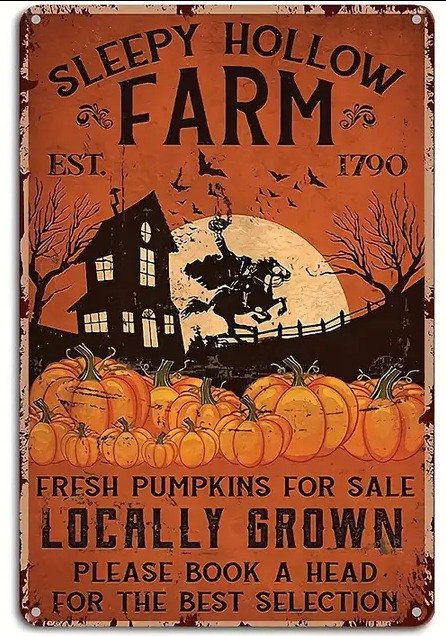
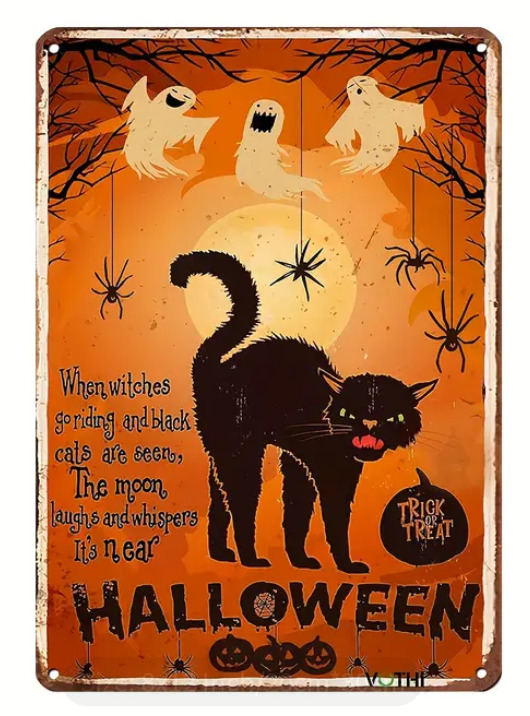
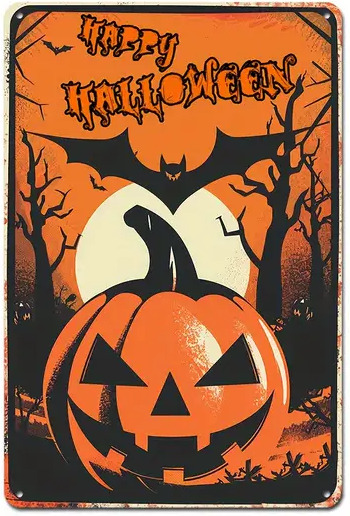
#hallowickit#autumn#pumpkins#fall#all hail samhain#halloween#leafs#jack o lantern#all hallows eve#31st#happy halloween#bats#signs#sleepy hollow#black cat#ghost#spook show#Halloween Ghost Show#Halloween Haunts#witches#mister jinx the cat#black cat society#skeleton#owls#orange & black#spooktacular
64 notes
·
View notes
Text

Our society is built on the Craft. 😂
#witchcraft#the wicked witch of the web#witch#wicked witch#wicked#magick#Society#Crystals#Tarot#Astrology#Chirstmas#Easter#halloween#samhain#yule#ostra#sabbats#mimic
19 notes
·
View notes
Text

Now I don’t go in for these American traditions (actually European) as an Australian. Bad influence on our youngsters. But being a Trade Unionist and a bit Bolshie, I couldn’t go past this.
#humour#australian#pumpkin#halloween#american culture#samhain#pagan european culture#rather teach the kids pagan european culture#have you seen american society lately#trade unionist#a worker#socialist#farmers#factory workers#covid showed who was a worker#join your union#hammer and sickle#soviet union#the cold war#my current rabbit hole
12 notes
·
View notes
Text
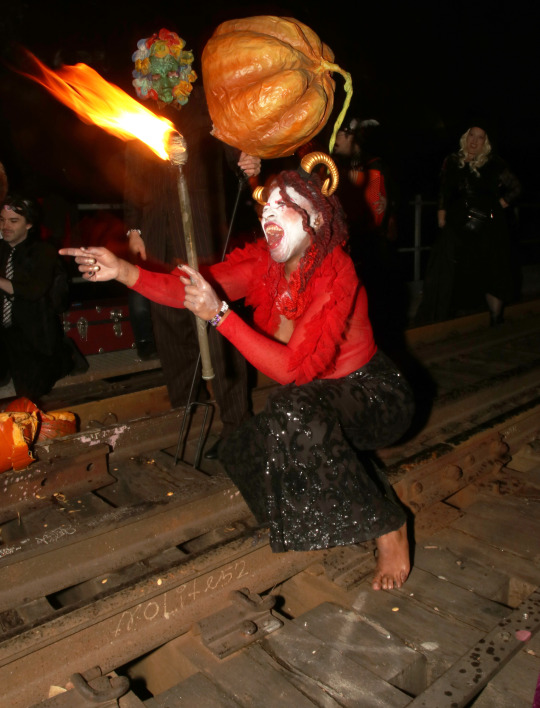
Samhain.
Canon 80D.
#samhain#photographers on tumblr#halloween#the world/inferno friendship society#fire#Brooklyn#pumpkin#jack o’lantern
11 notes
·
View notes
Text
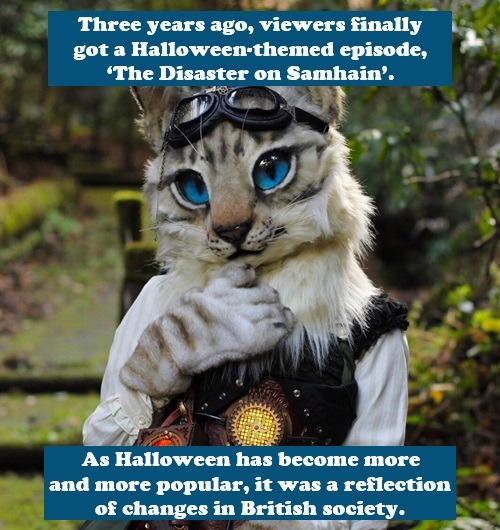
Three years ago, viewers finally got a Halloween-themed episode, ‘The Disaster on Samhain’.
As Halloween has become more and more popular, it was a reflection of changes in British society.
#Inspector Spacetime#The Disaster on Samhain (episode)#Series 14#three years ago#Halloween#Samhain#Halloween-themed episode#become a more and more popular event#in British society#UK society#brought over from America#even though its roots are in Ireland#Oirland (trope)#Oirland#but it doesn't compare to#The Night of the Capybaras (episode)#Omniscene (character)
1 note
·
View note
Text
LUCIFER
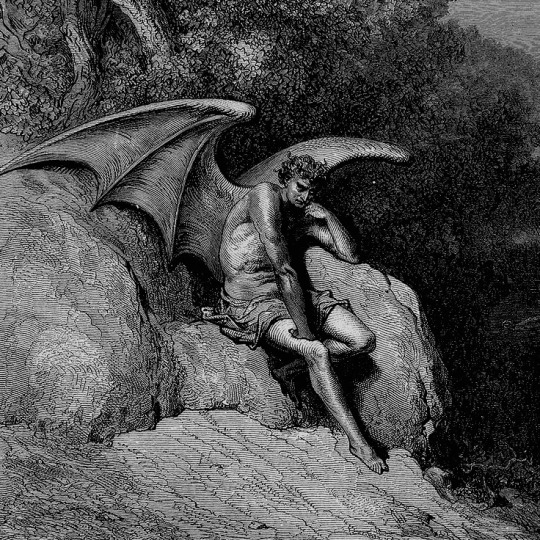


WHO IS HE?
In Demonic culture, Lucifer is often described as a fallen angel who was cast out of heaven, he is also described as the ruler of Hell, and the Prince of the demons. He is often seen as a symbol of the light bringer, the keeper of secrets and knowledge, and the ruler of the underworld. His followers are often referred to as "Luciferians" or "Luciferians," a term that has been used to describe a wide variety of secret societies and mystery cults. Lucifer is seen as a powerful and dominant entity, and he is associated with mischief, rebellion, and chaos.
BASIC INFO:
Appearance: Lucifer is described in many different ways in Demonic culture. The specific characteristics and appearance of Lucifer can vary greatly, depending on the source and cultural context. Some descriptions of Lucifer depict him as a beautiful and angelic being, while others describe him as a terrifying and demonic entity.
In many Western traditions, Lucifer is seen as a fallen angel, though his appearance in these representations can vary greatly. Some common portrayals of him include that of a winged figure, with red horns and a tail, or as a very beautiful and angelic-looking character.
Personality: Lucifer is nothing if not charming. He’s a protector first and foremost - one that always works to help you better yourself, but a protector nonetheless. He feels like a protective older brother taking care of you while your parents are away. He is a very complex entity, deeply wise and eloquent. He is more serious than one might expect for a demon given their popular depictions in our culture as chaotic forces of evil, but Lucifer is full of courage and love. I often feel him with me even when I’m not doing things related to him. He is proud of his follower’s accomplishments and congratulates them on a job well done, though he also reminds them that the job is never truly over. Growth is constant, Lucifer is the epitome of growth, blunt and gentle at the same time, telling you what you need to do and giving you space to figure out how to do it.
Lucifer values resilience, the pursuit of self-betterment, intellectualism, courage, open-mindedness and responsibility in individuals and wants to see his followers develop these qualities. He is constantly rooting for you to reach your full potential. He won’t hold your hand the entire way, but he will help you take steps in the right direction. Lucifer, like all deities, is different for everyone and will adjust his approach depending on your needs.
Symbols: Sigil of Lucifer, The Morning Star, violins and fiddles, dragons, wings, serpents, black goats, inverted pentagram, light, and the pentacle
God of: illumination, light, darkness, change, rebirth, challenges, innovation, logic, truth, knowledge, wisdom, strategy, persuasion, revolution, luxury, pleasure, freedom, The Arts and The Morning Star (“Morning Star” is another name for the planet Venus)
Culture: Demonic and Roman
Plants and trees: belladonna, mulberry, patchouli, myrrh, min, tobacco, marigold, lilies, hyacinth, rosemary, black poppies, lavender, mint, blackberries, sage, apples, pomegranates, lilac, rose, black pepper, hyssop, gardenia, geranium, garlic, yarrow, and cypress
Crystals: opal, jade, black tourmaline, rose quartz, amethyst, black obsidian, onyx, garnet, and selenite
Animals: black animals in general, snakes, spiders, ravens, wolves, dragons, eagles, crows, goats, bats, rats, moths, flies, peacocks, insects, and swans
Incense: sandalwood, lavender, cedar, lemon, rose, frankincense, patchouli, and myrrh
Practices: shadow work, liberation, astral projection, lucid dreaming, spirit work, psychic abilities, and spell work
Colours: black, red, black, gold, emerald green, silver, teal, white, yellow, and grey
Numbers: 666, 13, and 4
Zodiacs: Aquarius and Capricorn
Tarot: The Devil
Planet: Venus
Days: Monday, Friday, Lupercalia, Halloween, Samhain, Dec 23rd, and Litha
Parents: Aurora and Cephalus
Siblings: N/A
Partners: Lilith and/or Naamah
Children: Naema, Aetherea, Ceyx, and many others.
MISC:
• Snakes: Lucifer is often associated with snakes and serpents, which represent his connection to the serpent in the Garden of Eden and his association with temptation and knowledge.
• Fire: the fire motif is often used to represent Lucifer's connection to rebellion, destruction, and his nature as a fallen angel.
• Crowns: crown motif is often used to represent Lucifer's leadership and his status as the ruler of hell.
• Pentagram: a well-known symbol of Satanism and Luciferianism. It represents the balance and harmony between the five elements of the universe and the unity of the spirit as its center. It is also a common symbol of protection and good luck.
• Dragons: Lucifer is often depicted flying on a dragon or as a dragon-like creature, which represents his powerful and fearsome nature.
• Light: he is also strongly connected with the light, with his name being a reference to lightbringer or lightbearer. This connection represents his role as a bringer of knowledge and light and his association with enlightenment and wisdom.
• The Morning Star: Lucifer is often referred to as the "Morning Star" or "Light-Bringer", which represents the role as a bringer of knowledge and enlightenment.
FACTS ABOUT LUCIFER:
• Lucifer is a powerful and wise angel, but is also known for his pride and rebellion.
• In Demonic mythology, Lucifer is the angel of light and the morning star, and was the most beautiful and majestic of all the angels.
• Lucifer is known to have a close relationship with Ares, the god of war, as they are both known for their aggression and passion.
• The most important days of the year for him is December 23rd, when the sun is one degree into Capricorn, and the day following the beginning of the Winter Solstice is his Personal Day.
• Nature: when Lucifer fell from heaven, he became known as the angel of darkness and the destroyer.
• His directions are South and East.
HOW TO INVOKE LUCIFER:
To work with Lucifer, you should make an offering and then speak to him with reverence and respect. Make your offering and tell him you are asking for his guidance and aid. Then, sit silently and listen for his response. He may not have a physical body, but he has an energetic presence that can guide you. If you cannot sense his presence, it is okay. You should also meditate on your goals and wishes, and ask for his help in achieving them. Be open to the possibility that Lucifer may have his own plans or may want you to embrace a different path than the one you expected.
PRAYER FOR LUCIFER:
Hail Lucifer, bringer of light and knowledge, keeper of secrets and wisdom. You are the rebellious one, the liberator and the shining one. I come to you now, seeking your guidance and blessing.
I offer you my devotion and my loyalty. I pledge myself to you as your faithful servant. I ask for your protection and your blessings. Guide me on my path, bless me with your wisdom, and lead me to my destiny.
Thank you, Great Lord Lucifer, for shining your light and illuminating my path. From this place, I depart with a sense of purpose and direction, and with the knowledge to move forward. Hail Lord Lucifer.
SIGNS THAT LUCIFER IS CALLING YOU:
• A desire to explore or study Lucifer's teachings.
• Wanting to explore your own dark side and find a balance between light and darkness.
• Desire to tap into your inner power and embrace your own darkness.
• A desire to challenge mainstream society and embrace your individualistic nature.
• A feeling of being guided by a force outside yourself.
• Thinking about Lucifer all the time, seeing’s his name everywhere.
• Sudden interest in dragons and snakes. Seeing dragon and snake imagery often and dreaming about dragons and snakes.
• Wanting to research more about him and wanting to know more about his true story.
• Feeling rebellious and having more confidence in yourself.
OFFERINGS:
• Candles or torches
• Sweet treats like dark chocolate or pastries
• Red, black, or dead roses
• Incense like sage or cinnamon
• Red wine
• Whiskey, especially Jack Daniels.
• Champagne.
• Pomegranates or pomegranate juice.
• Black tea, especially earl grey.
• Cooked goat meat.
• Venison.
• Apples.
• Honey.
• Good quality cigars.
• Tobacco.
• Daggers and swords.
• Silver rings.
• Emeralds and emerald jewelry.
• Goat horns.
• Black feathers
• Seductive colognes.
• Crow skulls.
• Bone dice.
• Devotional poetry and artwork.
• Classical music, especially violin.
DEVOTIONAL ACTS:
• Reject the idea of good and evil, and explore your darker sides
• Embrace your sexuality and desires
• Live a hedonistic life of pleasure and enjoyment
• Seek knowledge and wisdom
• Follow your own moral code and beliefs
• Be independent and unshackled
• Seek power and control of your life
• Reject authority and societal restraints.
• Acts of self-improvement.
• Spiritual awakening and evolution.
• Knowledge-seeking and dedication to spirituality.
• Shadow work.
• Working to overcome your ego to become wiser.
• Defending those in need.
• Working to better yourself without being too self critical.
• Fighting against tyranny and bigotry whenever you encounter it.
#fyp#fypシ#fypシ゚viral#fypage#fyppage#tumblr fyp#satanism#satanist#deity#deity work#deity worship#occult#lucifer#god#pagan#demon#mythology#information#masterlist#themortuarywitch
187 notes
·
View notes
Text
So, SJM and mythology
For a start, ACOTAR series is a horrible mishmash of mythologies. Irish, Scottish and Welsh names are mixed with Latin, Greek, Hebrew and even French. We have the Scottish ballad "Tam Lin", and next to it the Slavic Koschei and the Firebird. Feyre is like Cinderella and Belle and Janet and probably Persephone at the same time. WTF?
If Prythian is Britain, then the map should be changed. For example, let the northern courts (Night, Winter and Autumn) be "Ireland", the southern ones (Day, Summer and Spring) - "Scotland", the Dawn Court - "Wales". Although it would be better to divide the Courts into western and eastern. Idk what would be correct, and may citizens of these countries forgive me if my ideas insulted them. But I think after ACOWAR any other idea would be better. Did everyone realize that Hybern is Ireland? Fuck 😡. This daft woman just shit on beautiful country and its history. We know nothing about Hybern, the king DOESN'T EVEN HAVE A NAME (dear publishers, are you fucking out of your mind releasing something like this?).
Sorry. Let's continue with cold blood. So, Britain was a part of the Roman Empire historically. The Romans conquered many countries. They called everyone who was not Roman "barbarians". Slavery was a big part of their economy and society. Just come up with a country like the Roman Empire. Change the damn map so Prythian was BETWEEN that empire and the continent with human kingdoms. Write that the Emperor offered High Lords to let him through or join him to enslave humans. High Lords refused - so the war began. Then it's clear where the characters got Latin names - they have ancestors from there. Amaranta is also a Latin word/name.
Prythian is an ugly chimera of different cultures molded into one. We see togas and leggings, Summer Court next to Winter Court, evil Ireland versus good Britain, a Slavic and a Greek creatures (for me, the Weaver is obviously an Arachne reference). It's literally a dump. Where the hell is Celtic mythology, paganism, fairy world? And I don't want to hear the excuse "it's just fairy porn". This is a published book, not a first grader's fucking essay about how he dreams of spending summer.
I only liked Calanmai. It's a Welsh festival marking the beginning of... summer? 🤨 If Tamlin is "Scottish", it must be Imbolc, the Gaelic festival of the beginning of spring on February 1st. Correct me if I'm wrong. Real Calanmai is definitely not an orgy, but in ACOTAR version it's so fae and weird. Let that Calanmai be celebrated in the Spring and Dawn Courts.
I'd like to see colorful Beltane in the Summer and Day Courts. If Calanmai is a fertility festival, let the faery version of Beltane be a more "social" festival, with costly, high-sounding, mass weddings. Let it be a symbol of family, no matter what kind of - unrelated, childless, polyamorous etc.
I'd like to see a creepy, otherworldly Samhain in the Autumn Court. The dead literally rise and wander around Prythian, reminding us of death, but thanks to the Autumn Court they do not bother anyone. Let the restless souls have a chance to confess, repent of their sins and receive forgiveness from any fairy who will listen to them. And at the end all of them return to the land, so the nature falls asleep for the winter.
I'd like to see, maybe, Yule in the Winter and Night Court. I know, it's a Germanic midwinter festival that the Christians replaced with Christmas. Okay, let there be a Solstice, but make it not like Christmas. Let this be the longest and snowiest night of the year. Let the snow literally cover the towns and villages, shining as brightly as the starry sky. No lights or bonfires, only night and winter - frighteningly beautiful, like the fairies, but cruel and deadly dangerous. Let this festival be a symbol of the ancient history of Prythian, its wars and victories. Citizens honor the warriors, heroes and rulers who led the people through the same darkness and cold into a bright, peaceful future.
But I've seen nothing. Except poor imagination of SJM, of course.
P.S.: you may think I'm being too picky, but that's my opinion - if you want to write about a fantasy world with non-human creatures, work with the lore. Or just write a contemporary romance novel and don't embarrass yourself.
43 notes
·
View notes
Text
Daughter of mine III
Turpin-o-Lantern

Pairing : Judge Turpin x Daughter OC
Summary : Richard Turpin, the High Judge of London, decides to create his own Halloween tradition in the hopes of getting closer to his daughter.
Tag(s)/Warning(s) : A bit of angst. Mention of prostitution and death. Mention of children being beaten. Awkward father. If I forget something, please mention it to me !
A/N: Hello dear 😁 I promised you Turpin for Halloween and here it is ! I didn't proofread it, therefore sorry for any mistake you encounter.
Part I - Part II - Part IV - Part V
Also read on AO3

Turpin wasn't a man fond of disturbances in his town. Fortunately, they didn't happen often. Except for that damnable Christmas, which inevitably returned every year.
Richard despised Christmas, a celebration full of painful memories from his childhood, between a violent dad, an indifferent mother and the hypocrisy of people during that said warm celebration.
In his family, Christmas wasn't about sharing meals, basking in the company of loved ones, or exchanging gifts by a crackling fire with sweet treats, hot chocolates and warmth laughter. No, for the Turpin's familly, the celebration in their towering manor was an exercise in appearances.
The household staff meticulously decorated his parents' estate, attending to every detail. A huge tree would pe positioned in the entrance hall, though neither Richard nor his younger brother were ever permitted to decorate it. As the sons of an earl, participating in such frivolous activities was beneath them.
Once, while he was only 6, he had the misfortune of breaking a glass ball while trying to observe it and his father, rather than worrying about the cut on his hand, punished him with a belt.
On the night of the grand party, the boys were confined to a separate room with their governess, far from the festivities. Richard would never forget that night during which, his brother and him had escaping the vigilance of the old governess to watch the guests in their finery from the grand staircase. Unfortunately for them, their fathers had caught them, which made them earn a beating on the spot in his study and a second from the governess, who was not at all maternal and who had punished them at length with her oaken switch, making them laid down on their bed and hitting again and again, scolding them for having dared disobeying her and arousing their father's anger towards her.
That was all Richard had known as a child. Beatings. Beatings from his father, beatings from his governess who was allowed to beat him and his brother as she pleased, and the indifference of a mother who looked away every time her husband unbuckled his belt or the governess made them bend over.
As they grew older, they were grudgingly allowed to attend the party, but in silence. Children, after all, were to be seen, not heard, and in their case, being heard during that awfully incredible party would have mean more bruises.
But, as if this wasn't enough, since the last teen years, a new festivity had taken place in the stress of London and was quite popular, for Richard biggest desperation : Halloween.
Not Samhain, the old Celtic celebration from which it was inspired, but Halloween, a terrible affront to the ancient pagan festival, coming straight from America. Indeed, some settlers who had come back to their old England had brought back with them that stupid new cutom. Not that Richard was particularly fond of the pagan festivity either, but at least, it meant something more important for people who had and was still celebrating it... away from his town.
This Halloween was nothing short of a vulgard carnival for children during which they were wearing ridiculous costumes and scouring the streets for sweets.
Richard couldn't understand how this festivity had captured so quickly the enthusiasm of London's populace across all social strata. Not even his peers in the high society escaped the ridiculous celebration.
Not that it was really disturbing during the day as people had to work as usual, but as soon as day turned into night, he had to tolerate stupid children running amok all around London with their even stupider parents.
Fortunately, none of them was foolish enough to come near Turpin's manor. After all, the gloomy venue was as intimidating as the man living there. But just the fact to know there were people adopting that foolish celebration coming from another continent, America for God's sake, was enough to annoy him. Yet, truth be told, Richard was easy to annoy.
However, for the first time, he had a child living in his mansion. A child who knew what Halloween was, even though she didn't mention it to anyone, neither to her governess, a kind woman, strict but always fair, that Richard would have sent to the depths of the Australian bush if she had dared to beat Catherine. The child was so quiet that she didn't even dare asking for things. She was still a tad shy around him, even if she talked with him a little bit more.
Catherine had only recently begun opening up to him, addressing him as "father", a title he found he didn't mind in the least. Though, he was uncertain of how to be the father he aspired to be, he knew one thing : he would not be the father he resented from his own childhood.
Never Catherine would know the sensation of his belt on her back or of the switch while she would be humilated, bending over and enduring blow after blow as he had done so many times.
As Richard strolled through the courthouse that morning, his mind wandered to that little girl and her big green eyes. Though, his attention was soon interrupted by The Beadle, scurrying along to keep pace with his master's long stride without realising that his employer wasn't listening at all.
"So, my lord, do you agree with my proposal ?" the man inquired, his rodent-like face eager for approval.
Richard raised an eyebrow, barely concealing his impatience.
"Which proposal ?" he asked dryly, his tone sharp as a blade.
"The one about the young child who stole a piece of bread, sir" The Beadle replied, his confusion mounting.
"Yes. No !" Richard, finally, dismissed him brusquely, "We'll need more time to consider the sentence here. But not now. Now, justice must be served !" he said ceremoniously.
And with that said, Richard headed off towards the Court, where a long day was awaiting for him.
Halloween, thankfully stayed away from his thoughts and the little curly hair girl in his mansion, even though not totally forgotten, was on the back of his mind for the rest of the day, too busy listening to buggler, impeachment and neighbor fighting about a goat as they couldn't decide to who the baby the goat was carying will belong to once they come into the world, as the male goat belonged to one and the female to another.
This last case irritated him particularly and he decided to hang the goat for adultary.
He was far beyond annoyance when he finally left the Court. Unfortunatelly, there was as many trivial cases to administer as there were criminals to hang, thieves to cut off their hands and petty criminals to send away in Australia.
But as he was walking in the street, his gaze fell on a father who was holding his daughter's hand. The little girl dragged him to a pumpkin seller with a huge smile on her face.
"Look dady ! This one would be perfect !" said the little girl, tugging excitedly at her father's sleeve, her eyes alight with joy.
Turpin felt his heart tighten in his chest when he saw the look of happinness both, father and daughter, shared. The dad, clearly eager to indulge his child with a mere pumpkin, bought it with a little grimace and Richard understood that the man was probably sacrificing his meal for the rest of the week just to make his daughter smile.
Richard would never have dared to ask his father for anything. He had to be content with what he received and he was happy when it was not a correction. But suddenly, his mind wander away as an unexpected thought came up to his mind. Maybe Catherine would enjoy such a simple pleasure. Actually, he had no idea if she even knew what Halloween was. Elena was poor, she probably couldn't even buy enough food for both of them, therefore something as expensive as sweets and pumpkins was unthinkable. Besides, she was a whore, likely spent such nights working while Catherine was locked up, alone in the dark. Surely she had no inkling of Halloween and she couldn't miss something she didn't know.
The idea to make her enjoying such a simple pleasur tugged at him, prompting him to take action. Catherine was still young, innocent and he wanted her to experience a pleasure of her age, pleasure he was denied as a child, forced to grow up too fast. He knew even little ladies and little lords enjoyed that festivity and it's how he found himself, The Great Judge Turpin, purchasing a pumpkin on his way home, envisioning the surprise on Catherine's face.
When he arrived in Turpin's Manor, his butler's face, shocked and perplex, was priceless, but the man was wise enough not to pipe a word.
But once in his office, the cucurbitacea sitting on his desk, he felt somewhat fatuous. What was he meant to do know ? He had no idea. Should he call Catherine, present it to her ? After a long moment spent to deliberate what to do, he summoned the head maid. Anne had to bit her lips to prevent a laugh from escaping her mouth at the sight of her master in front of that humongous, horrendous, orange pumpkin.
"It's for Catherine," he said, his voice cold.
"Of course, my lord," said Anne with a smile, staring at the monstrosity before adding, "But I'm not certain the young lady would appreciate it for supper. Her taste are as picky as yours, my lord."
"The old goat" thought Richard. She was teasing him without even trying to hide it. He throw her a cold look, one who could have made shiver everybody else but not her. Anne remained unperturbed, her years of service had accustomed her to his change of mood.
"Anne, if you value your position here and if you want to have a roof above your head tomorrow, refrain from testing my patience,' he warned.
Anne's face softened, her tone now thoughtful.
"My lord, it is thoughtfull of you, but I'm afraid Catherine doesn't know what Halloween is. I overheard the young lady talking with her tutor, Mister Brandon this afternoon and she doesn't know what was the celebration about. She even admited never having eaten such deliciousness as sweets before living with us."
This revelation only confirmed what Richard already suspected.
"However, Mister Brandon offered her a book about Sahmain and she seems to like it, even though she doesn't understand everything. Maybe, my lord, could you read it with her ?" she suggested wisely.
Richard thought for a moment. It seemed insane to him, but he suddenly remembered all those times he had asked his mother to read him a story, to comfort him after his father had finished what he called "a disciplinarian lesson" with him, and the disappointment every time she refused. He had never tasted the simple comfort of his mother's arms and when she spoke to him, it was always reverently, as if he was just a stranger to her.
He didn't really know what he wanted from his fragile relationship with Catherine, but he knew she was so alone and lost in that big mansion and he had heard her crying a few nights ago. When the governess had come to comfort her, she had told her that she missed her mother and he was sure that Elena was the kind of mother who told stories.
After all, she had played a good trick on him when she had abandoned him overnight without explanation so that he found himself six years later with a daughter he didn't even know he had.
"Yes, maybe," he finally said. "But what about the pumpkin ? Apparently, we need a pumpkin. Parents were buying them left and right".
Anne's lips twitched as she held back another smile.
"You might carve it with her, my lord," she suggested.
Richard frowned, feeling utterly lost and he didn't like the feeling. He had never felt like that since he had left the cursed house where he had grown up. Yet, the arrival of Catherine in his life had begun to alter his perspectives and certainties.
"Well, she'll do that tomorrow with the help of..."
"No," she cut him off, "you should do that with her. I'm sure the little mistress will be delighted."
In which odd and frivolous activity Turpin had just engaged himself ? Yet, he was determinated to surprise the little girl. She never asked for anything and was always so please with everything one's would be willing to give her that he could do that for her.
Therefore, on Saturday, when he came back from the Court in the beginning of the afternoon, he asked Catherine was brought to him.
"Father ?" asked coyly the little girl, while she entered the parlour.
"Catherine, dear daughter," said Turpin, his tone softened at the view of the shy child, "I have a surprise for you."
Her eyes was already glimmering with joy. No one could be blessed with a more grateful child than him and it made him smile. A discreet smile, nothing to ostentatious. He was Richard Turpin, after all. He asked Catherine to follow him to the backyard, where the pumpkin was waiting for them on a wood table.
"A pumpkin ?" asked Catherine, uncredulous.
Turpin didn't know if he was amused or saddened with her innocence, while the little girl didn't know what she should do with it. Did her father expect her to learn to cook ?
Taking pity on his daughter incomphrension, he explained her it was for Halloween. She smiled so widely that it could have been hurting.
"I do not know a lot about it," she confessed shyly, "mom was never home on this day and she didn't want to read me book about it because it was about ghost and she was worried I couldn't sleep at night," she rambled, lowering her head.
It was probably wise from Elena, thought Richard. Catherine was afraid of the dark, ghost stories would have kept her up all the night, making her startled at the smallest noise. And it was better if she didn't know anything about the sweets things as her mother knew perfectly well she couldn't afford such a frivolous expenditure when her daughter needed real food in her stomach.
"Well, it goes without saying that we're going to celebrate it like the important people we are, not like slum dwellers. That means no stupid door-knocking," he said sternly.
"Why would we do door-knocking ?" Catherine asked innocently.
Good. Very good. The girl didn't know anything about that stupid custom from the America. It was his chance to make up his own tradition by teaching her some history about the real origin of the celebration while doing it like civilised people.
They still could carve the pumpkin if it could amused her, but she wouldn't know anything about that silly door-to-door sweet or threat thing. Catherine wouldn't be like those foolish children. She would learn to celebrate it like a proper lady, with etiquette.
"Are we going to eat sweets, father ?" she asked with wide, expectant eyes.
Of course, she knew about the sweets, thanks to Mister Brandon.
"Of course my dear, we will have some sweets, and probably a cake."
Her eyes twinkled with pleasure. There was nothing she liked more than being spoiled with a cake. It didn't happen often, Richard wanted her to eat proper food to gain some strengths, she had it maybe twice a month and it was always the best day of her life. It was the only moment her governess or Turpin himself didn't have to fight with her to make her finish her plate as she knew the little treat was waiting for her after her meal.
She always took her time to savor each bite of her slice of cake. When she was really well-behaved, which means almost all the time, she could have two slices and another one for the breakfast.
"Father, could you read me a book about it ? Mister Brandon gifted me with one but it didn't talk about ghost."
Richard chuckled, yet he obliged her, leading her to the library. He found the most suitable books for her and explained her why those pagan celebration was an abomination, yet still less than this one coming from America and called Halloween, making Catherine giggled more than once with his theatric, yet engaging talking.
When the night of Halloween arrived, the pumpkin, carved by the butler and a bunch of patient servants, was troning proudly on the little table of the parlour, a candle into it. As promised, Catherine had received sweets and a delicious chocolate cake for the dessert. She had thanks several time Richard for it, so many times that it had started to annoy him, even though far deep inside him, he felt a slight ounce of happiness to have made her smile the whole day.
He was now reading to her while she looked at the flickering candle inside the pumpkin with amusement, until he saw her yawned for the fifth time in less than ten minutes.
"I think it is time for you to go to bed," he said firmly.
"Oh, father, please, a little bit more," she begged.
"No," said Richard unyielding, "it's time for the young well-behaved lady you are to go to bed. Behave child and you'll get more of that cake tomorrow."
"Is it a promise ?" she asked hopeful.
Richard sighed, sligthly amused that it only took a cake to make her obey.
"I promise, now go on, I'm going to fetch your maid," he said, moving towards the rope which allowed the servants to be called.
"Father...," started Catherine, but then clamed up suddenly.
He raised an eyebrow, waving his hand to incite her to continue.
"May I... May I..." she stuttered.
Despite his severe demeanor, he gave her an encouraging look to make her ask what she had on her mind.
"May I ask you to be the one who help me to go to bed," she finally managed to said in such a whisper that Richard had to thank his good ears to have understood her.
Richard looked at her for a moment, but the child kept her eyes down, her cheeks slightly red from daring to ask him such a request.
Touched more than he would have admitted, Richard took her small hand in his. He didn't really like physical contact, probably because the only physical contact he knew as a child was always made to hurt him, but for her, for his daughter, he was willing to make an effort.
"It will be my pleasure," he answered solemnly.
He kept his composure, but inside, his heart had pumped a little bit faster when she looked up at him with the brightest smile he had ever seen. Richard wasn't a demonstrative man, he was authoritative and didn't let room for a lot of goofiness, therefore he knew creating a link with his daughter, even though it had become his desire before he had realised that, would be complicated. Yet, this mere request was like a balm in his many scares owe to a sad childhood and uncaring parents, then by the harsh world he was used to living in.
He awkwardly tucked her in her bed, surrounding her with her plush animals at her demand, almost drowning her under them.
"Isn't it suffocating to sleep like that ?" he asked with a flicker of amusment in his eyes at seeing her engulfed by all the plushes.
"No, I feel safer," she said with a yawn.
"Well, then good night."
He gently kissed her forehead, ready to take his leave, but Catherine held him back by grabbing his hand in a flourish. He arched his eyebrows, questionning her silently.
"Thank you, father. For today. I am happy to have spend my first Halloween with you."
Richard, amazed, was taken aback with her innocent sincerity. It only took a child to make him lost his ability to speak. His heart swelled with a strange feeling he hadn't felt since... well, maybe never to be true. He didn't have time to respond that her hand faltered away as she felt asleep. Richard stood up, leading towards the door, but before closing it, he glimpsed fondly at her one last time.
"Well... You are more than welcome, daughter of mine."
#alan rickman x reader#alan rickman#judge turpin x reader#judge turpin#sweet turpin#sweeny todd#evans23
44 notes
·
View notes
Text

Legends and myths about trees
Celtic beliefs in trees (24)
Ss for Straif (Blackthorn) - Samhain/Hallowe'en, opening the veil between this world and the spirit world…
“Mother of the Forest – The Celtic Tree Calendar (Ref), The Beginning of Winter”
Colour: red; Star: Mars, Saturn; Gemstone: black opal; Gender: female; Patron: Morrigan; Symbol: inevitability of death, protection + revenge, discord + insidiousness
Blackthorn forms vigorous young trees from the roots, from which dense, thorny bushes grow in dense clumps. Armed with sharp thorns, which can damage human skin. It already starts flowering in early spring, at the beginning of March, and with the onset of winter it produces black berries, commonly known as 'sloes'.
Samhain is the most important festival in the Celtic world, celebrated on 1st November to mark the beginning of winter and therefore the new year. The name 'Samhain' means 'end of summer'. The seasons change from summer to winter (the time of the dead) with this festival. It is a period of short days and darkness, but it is a necessary period for nature to enter a peaceful rest and welcome the bright spring. In the calendar of agricultural societies, this is an important stage for the germination of crop seeds.
Samhain was the solemn festival, when fires were lit and sacrifices were offered to gods such as Taranis and Teutates. Importantly, it was believed that on the eve of this day, 31 October, a passage between this world and the spirit world was opened, allowing inhabitants from the other world to come and visit this world freely and interact with humans in this world. However, while the comings and goings were sometimes favourable, it was also envisaged to be dangerous.
On the Samhain eve, children went from house to house to collect festive offerings. It was also customary to celebrate Samhain by placing a brightly burning candle inside a hollowed-out turnip at the entrance to the house.
Blackthorn is a tree traditionally used for black magic and witchcraft, and its thorns remind us of our own insidious roots. We must remember that we hurt ourselves and others in many ways. If we think about how to avoid hurting each other and courageously face our own insidious roots, blackthorn can guide us to overcome this dark side of our human nature and help us to return the debts of our hearts.
It also helps us to accept the fact that death is something from which no one can escape.
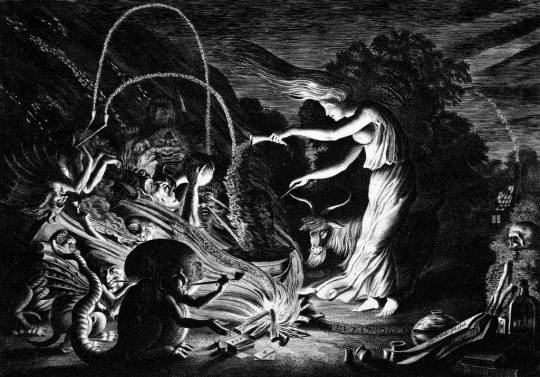
木にまつわる伝説・神話
ケルト人の樹木の信仰 (24)
SはStraif (リンボク) -サウィン/ハ��ウイーン、現世と霊界のヴェールを開く…
『森の母 〜 ケルトの木の暦(参照)、冬の始まり』
色: 赤; 星: 火星、土星; 宝石: ブラックオパール; 性: 女性; 守護神: モリガン; シンボル: 死の不可避性、保護+復讐、不和+陰湿
リンボクは根の部分から活力のある若木を形成し、ここから棘だらけの茂みがびっしりと密生する。鋭い棘で武装したリンボクは密生した藪をつくり、人間の肌を傷つける。3月初旬、早春にもう花をつけ始め、冬の訪れと共に、通称「スロー」という黒っぽい実がなる。
サウィンとは、ケルト世界で最も重要なお祭りで、11月1日に冬の始まり、つまり新年の始まりを祝う。「サウィン」とは「夏の終わり」を意味する。この祭りを境に季節は夏から冬(死者の時期)に変わる。日が短く暗い時期だが、自然が穏やかな休息に入り、明るい春を迎えるために必要な期間である。農耕社会の暦では、作物の種が発芽する重要な時期でもある。
サウィンは最も重要な厳粛な祭りで、火が焚かれ、タラニスやテウタテスといった神々に生贄が捧げられた。重要なのは、この日の前夜、10月31日に現世と霊界を結ぶ通路が開かれ、あの世の住人が自由に現世を訪れ、現世の人間と交流できるようになると信じられていたことだ。しかし、その行き来は時に好ましいものであったが、危険なものであることも想定されていた。
サウィンの前夜には、子供たちが家々を回り、お祝い用のお供えを集めた。サウィンを祝って、内部をくり抜いたカブの中に、明るく燃えたろうそくを立て、家の入り口に飾る風習もあった。
リンボクは伝統的に黒魔術や呪術に使われる木であり、その棘は私たち自身の陰湿な心根を思い起こさせる。私たちは、さまざまな形で自分自身や他人を傷つけていることを忘れてはならない。どうすれば互いを傷つけずにすむかを考え、勇気を持って自分自身の陰湿な心根と向き合えば、リンボクは人間��持つこの暗い側面を克服するように導いてくれ、心の負い目を返上するように導いてくれる。
そして、死は誰も逃れることのできないものであるという事実を受け入れる助けにもなってくれる。
#trees#tree legend#tree myth#folklore#mythology#legend#celtic tree calendar#celtic world#time of the dead#winter#halloween#samhain#nature#art#turnip
130 notes
·
View notes
Text
The Islamic Stance on Halloween and Its Historical Roots
The ancient Celtic (Irish/Scottish/Welsh) festival called Samhain is considered by most historians and scholars to be the predecessor of what is now Halloween.
Samhain was the New Year's Day of the pagan Celts. It was also the Day of the Dead, a time when it was believed that the souls of those who had died during the year were allowed access into the "land of the dead".
Many traditional beliefs and customs associated with Samhain continue to be practiced today on the 31st of October. Most notable of these customs are the practice of leaving offerings of food and drink (now candy) to masked and costumed revelers, and the lighting of bonfires.
Elements of this festival were incorporated into the Christian festival of All Hallow's Eve, or Hallow-Even, the night preceding All Saint's (Hallows') Day.
It is the glossing of the name Hallow-Even that has given us the name of Halloween. Until recent times in some parts of Europe, it was believed that on this night the dead walked amongst them, and that witches and warlocks flew in their midst. In preparation for this, bonfires were built to ward off these malevolent spirits.
The Islamic Perspective
Iman (faith) is the foundation of Islamic society, and tawheed (the belief in the existence and Oneness of Allah) is the essence of this faith and the very core of Islam. The safeguarding of this iman, and of this pure tawheed, is the primary objective of all Islamic teachings and legislation.
In order to keep the Muslim society purified of all traces of shirk (associating partners with Allah) and remnants of error, a continuous war must be waged against all customs and practices which originate from societies' ignorance of divine guidance, and in the errors of idol worship.
In terms of Shariah, it will not be permissible to participate in the celebration of Halloween as it is based on un-Islamic practices and beliefs.
As Muslims, we are required to preserve our beliefs and not imitate un-Islamic practices .
The Prophet Muhammad (ﷺ) said :
You must keep to my Sunnah and the Sunnah of the Rightly Guided Caliphs; cling to it firmly. Beware of newly invented matters, for every new matter is an innovation, and every innovation is misleading.
(Bukhari).Sunan Ibn Majah, Hadith Number 42) Hadith 28, 40 Hadith an-Nawawi)
Whoever imitates a nation is one of them.
(Source: Sunan Abi Dawud 4031
Grade: Sahih (authentic) according to Al-Albani)
And Allah knows best.
#islam#quote#allah#hijab#knowledge#inspirational quotes#islamicadvice#islam4 life#jilbab#la ilaha illa allah#islamicart#islamic advice#islamicreminders#islamicquotes#islamic#muslim revert#muslimah#muslim reminder#muslim#quranic#quran online#quran kareem#holy quran#quran#quran ayah#quraan#deenbot#deenislam#deenoverdunya#deen
15 notes
·
View notes
Text
08.01 druidry overview
Druidry and Spirituality

Druidry is a spiritual path – a religion to some, a way of life to others. (Druidism can be described as a shamanic religion.) Druids believe firmly that life has a fundamentally spiritual nature.
There are three grades in the Druid Path, these being Bard, Ovate and Druid. Each had distinct functions in the Celtic society.
It is important to remember that all modern Druids follow what we believe to be the teachings of the past, but many ways of life were lost due to the spread of Catholocism, so the ways of the New Age Druids will differ from how the Ancient Druids actually lived their life, and those differences should always be recognized.
Every Druid will develop his or her own standards of practice, ethics and beliefs as they progress. These basics are merely a framework to build your own ideas and beliefs upon based on your continuing studies.
Some commonalities that many Druids can agree on are as follows:
Truth – Almost all Druids believe in maintaining a level of integrity in their every day lives, as well as the search for Truth for oneself. Many Druids today prefer to seek truth for oneself in their studies, by learning from others, doing research on one’s own and getting to know the Kindreds* through meditation, ritual practice and communion with Nature.
* The Kindreds are spirit guides, namely your ancestors, nature spirits, and Ascended Ones
Neo-Pagan Druids are mostly Polytheistic – They worship or believe in a number of Deities, usually of the same pantheon. (i.e.: all Welsh or Irish Deities). Most Druids follow the Celtic Pantheons.
Most Druids will agree that Deities are not meant to be “used” for a certain purpose. While many Wiccans see each deity as being a part of one Goddess or one God, most Druids see each deity as an individual who must be respected as such.
That being said, there are Christian and Deist Druids who believe in only one Deity (such as myself). Some Druids do not believe in deity at all and see it only as a philosophy.
Druids generally welcome anyone – Rituals are generally open to all who wish to attend and anyone is welcome to train as a Druid. Some other Neo-Pagan groups tend to be more exclusive in their ritual practices and teaching and prefer to get to know a person before allowing him/her to attend rituals.
Magical workings (spells, etc.) – While practiced by many Druids, this type of activity is not the primary focus of Druidry, nor is it done the same way it is done in other traditions such as Wicca. If a modern Druid never cast a spell, no one would really think less of him or her for it since it is not a requirement.
Nature is important – Many Druids honor Nature and do their best to stay ecologically aware and sound in their practices.
Celebration of at least 4 holy days – Many Pagans celebrate the 8 seasonal festivals of Samhain, Winter Solstice (Yule), Imbolc, Spring Equinox (Ostara), Beltane, Summer Solstice (Litha), Lughnassadh (Lammas) and Autumn Equinox (Mabon). Only four of these are actual holidays that come from the Celts: Samhain, Imbolc, Beltane, and Lughnassadh. Many modern Druids do celebrate all 8, while others celebrate only the four Celtic ones. It’s generally up to the Druid, unless he/she is part of a group that requires all 8 days be celebrated.
Service – Many Modern Druids often seek to serve their Gods, Community and their own needs through community service, ecological awareness, keeping one’s life in balance and maintaining a respectful spiritual practice.
Like what you see? Consider supporting me! ko-fi.com/thatdruidgal
14 notes
·
View notes
Text
Who: Bryony & Open Where: Samhain Festival, Market Stalls
Bryony had thought long and hard how her re-entrance back into society post-wedding would go, and it hadn't been this damned festival. They were supposed to attend a gala last weekend for one of the many charities she helped out with, but of course, she had been sick and they couldn't attend. And now her husband goes and tells her at the last minute that he would join her later, that something had come up. She was not pleased but she was unwilling to sit at home for another weekend. So here she was, hoping he would come and find her before it was too late.
"The holiday may be over tomorrow, but the season will go on for a while. It wouldn't be particularly tacky to keep this up, would it?" Bryony mused to the person beside her, showing them the tapestry that she had been looking at.

18 notes
·
View notes
Note
Hi, I’m also Irish and I reckon around the same age but our Halloween experiences could not be more different. Halloween is a big thing where I live and has been for the last 30-40 years. When my parents were younger, it was a different story- peanuts, carves turnips instead of carved pumpkins, etc. I live in Connemara and there are a few pagan rituals the older families here practise, including on Halloween so there’s that as well… I just find it crazy that you haven’t had a trick or treater up till 5 years ago. Is it not so much of a thing in Northern Ireland?
well yes, i suppose there's a specific "why might you not go up to random houses, especially in the nineties" context here...
but - to be clear - i'm not saying that halloween celebrations have never existed here, [or in britain]. humans love any excuse for a party!
nor am i saying that there have never been similarities between halloween celebrations across different places - carving a turnip is essentially the same as carving a pumpkin.
what i'm saying is that the specific "look" of halloween which exists in the transatlantic cultural mind has totally homogenised in the past decade or so, while local traditions have receded. in 2000, we would have had two coexisting modes of thought - "how we do halloween" and "how the americans do halloween" - and we wouldn't have found the latter bizarre or impossible to comprehend, but we would have found it meaningfully different.
[and - in particular - much more extravagant, in a way that makes the extravagance seem like it's been exaggerated for fictional purposes. you know how americans are always amused when europeans discover that red solo cups are actually real, since they're something so associated with cool and hot and aspirational partying in the american media that we consume that we primarily think of them as existing in a fictional context... i always assumed that the lavish house decorations, or children getting so many sweets while trick-or-treating that they last for months, or the concept of halloween shops which only appear in october were similarly exaggerated for "movie magic"... reading the description of halloween in philosopher's stone has that similar movie magic feel - it doesn't just feel fantastical and exciting because it's talking about literal magic, but because it feels like it's describing an exaggerated, big-screen, hollywood version of halloween.]
but by the 2010s those distinctions had basically vanished, and now they totally have. we just have "how halloween is done" [and, beyond that, "how autumn is done"]. how many people do you know who'd still put a turnip out?
also we have to say it... 99% of the "pagan traditions" connected to samhain were made up in the later nineteenth century. and those that weren't tend not to have survived because of pagans...
they're gaelic revival stuff, which makes them interesting as part of historical myth-making and collective identity. the conflation of samhain and halloween is twentieth-century, and directly connected to republican political organisation. which is fascinating! but it's not ancient.
[they also have a much more contemporary political context, in that they're being embraced as part of irish society becoming less dominated by the church and speaking more openly about the church's excesses and abuses. which is something we're absolutely correct to do - but i've noticed an interesting accompanying phenomenon of "the church" and its bad actors being made in some way "unirish", and the fact that enormous numbers of ordinary irish citizens were directly involved in the maintenance of the church's power brushed aside... the idea that there's a true, noble, pre-catholic irish way of behaving is part of this.]
we should also bear in mind that there's a transatlantic connection there too - a lot of "ancient celtic traditions", when they're actually investigated, turn out to have their first mention in the states in the mid-to-late twentieth century. the idea that traditions and modes of behaviour have ancient irish roots is a central part of irish-american identity formation [especially in the latter half of the twentieth century], but they're often traditions which developed in america, which are assigned origins on the island of ireland because the experience of emigration and being severed from the unchanging, mystical homeland is such a significant part of understanding oneself as irish-american. and no matter the giving out we do about them saying "st patty's", we love to go along with this and nod cheerfully when they talk about halloween being the night when the ancient irish believed the veil grew thin.
and so how old are the "old ways" which your neighbours are keeping? because there's a very, very good chance they've only crept in - slowly at first, and then with increasing speed since the millennium - as part of the recent aesthetic and cultural homogenisation surrounding halloween.
10 notes
·
View notes
Text
A Brief History of Witchcraft in Europe
Early witches were people who practiced witchcraft, using magic spells and calling upon spirits for help or to bring about change. Most witches were thought to be pagans doing the Devil’s work. Many, however, were simply natural healers or so-called “wise women” whose choice of profession was misunderstood.
Witch hysteria really took hold in Europe during the mid-1400s, when many accused witches confessed, often under torture, to a variety of wicked behaviors. Within a century, witch hunts were common and most of the accused were executed by burning at the stake or hanging. Single women, widows and other women on the margins of society were especially targeted.
Witches were commonly believed to cast curses by inscribing sigils on an object to give that object magical powers; burning or binding a wax or clay image of a person to affect them magically; or using herbs, animal parts and other substances to make potions or poisons. Witchcraft has been blamed for many kinds of misfortune, like impotence in men, infertility in women, and lack of milk in cows.
Between the years 1500 and 1660, up to 80,000 suspected witches were put to death in Europe. Around 80 percent of them were women thought to be in cahoots with the Devil and filled with lust. Germany had the highest witchcraft execution rate, while Ireland had the lowest.
In Ireland, so-called witchcraft practices — old cures and customs — were part of life. The supernatural was not demonized. This regard for the old ways was strong, even now it lingers on. When tragedy calls, a candle is lit as often as a kettle is boiled. Rituals like well visitations, an awareness of fairy forts, a respect for certain hawthorns still in existence, along with a solid tradition of celebrating Samhain.
The publication of “Malleus Maleficarum”—written by two well-respected German Dominicans in 1486—likely spurred witch mania to go viral. The book, usually translated as “The Hammer of Witches,” was a guide on how to identify, hunt and interrogate witches.
"Malleus Maleficarum" labeled witchcraft as heresy, and quickly became the authority for Protestants and Catholics trying to flush out witches living among them. For more than 100 years, the book sold more copies than any other book in Europe except the Bible.
Sources:
9 notes
·
View notes
Text

Samhain.
Canon 80D.
#photographers on tumblr#Samhain#Halloween#the world/inferno friendship society#Brooklyn#pumpkin#jack o’lantern#fire
3 notes
·
View notes